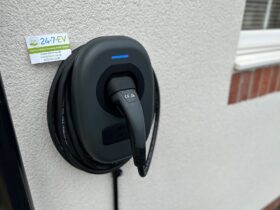Having multiple cars on the driveway can mean contending with considerable extra expense. Your household will need to pay twice for insurance, twice for road tax, and twice for the annual MOT, among other things. For many couples, this is reason enough to sell a car and to share the one that remains.
This is a strategy that comes with considerable benefits. But it comes with drawbacks, too. Considering them is critical if you want to establish whether making the leap is appropriate for your household.
Benefits
First, we should briefly run through the advantages. The major benefit is the most obvious one: it’s cheaper to keep just one car than it is to try to own and run two of them. If you’re willing to sell both cars and pick up an affordable used car that you can both use, then the potential savings might be even more considerable. This approach will also help you to avoid having to decide who’ll keep their old car.
By switching to a single-car approach, you’ll also make your household greener. Fewer cars means fewer opportunities to pollute the world around you.
You could even go a step further and invest in an electric vehicle, which produces zero tailpipe emissions and runs off renewable energy. What’s more, the logistics involved in a single-car household tend to be refreshingly simple.
Drawbacks
If you’re sharing a car, you’ll need to work out exactly who’ll be driving it and when they’ll be doing so. If you both need a car to get to work at eight in the morning, and your workplaces are in different places, then this might be an insurmountable difficulty.
You might also find it difficult to agree who is really responsible for the new car, especially if one of you is driving it a lot more than the other. Who is putting fuel in, and where is the money coming from? What about cleaning the interior? It might be that you can come to an arrangement involving a joint account, and a healthy division of labour when it comes to basic maintenance. What matters is that you come to an agreement in advance.
Factors to consider
So, is this a good fit for you? If your personal schedules overlap, then the answer is probably no. The same applies if one person isn’t willing to drive the other from place to place.
Think about how often you’re driving, and whether you’re likely to pick up new hobbies that necessitate you getting behind the wheel every now and then. What really matters, however, is your ability to coordinate with one another.
















Leave a Reply